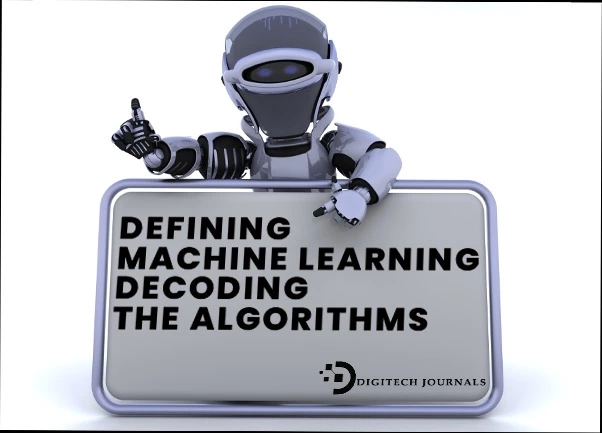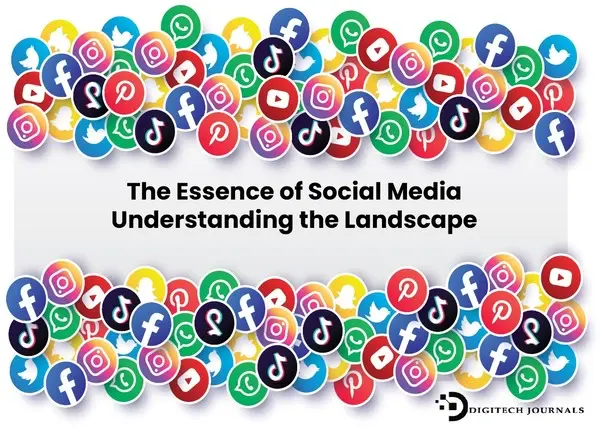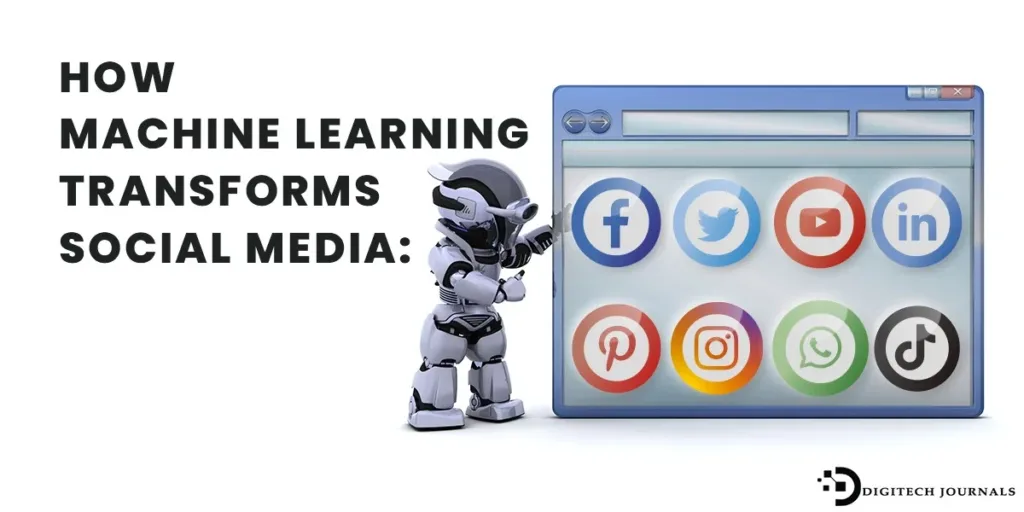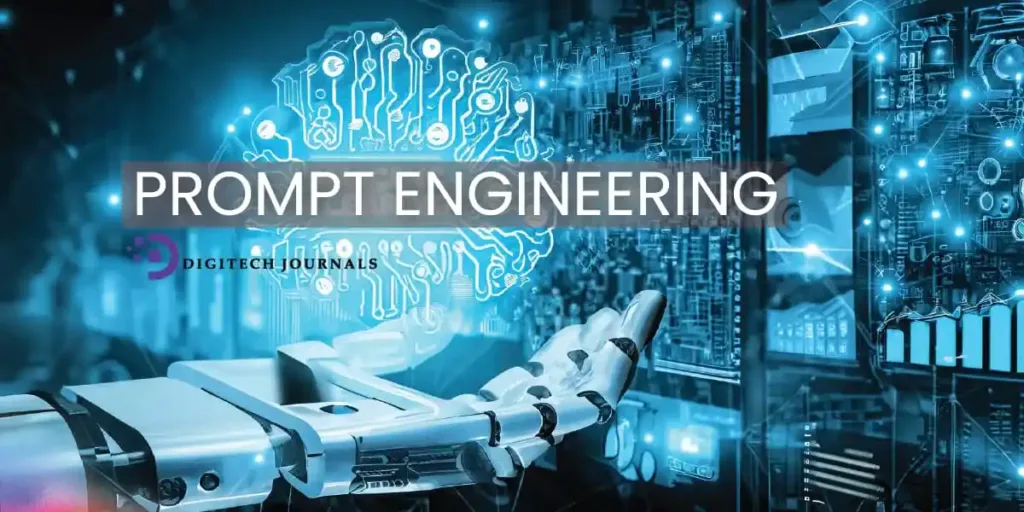Introduction
Machine learning, a groundbreaking technology rooted in artificial intelligence in social media, has ushered in a new era across various sectors. Its profound impact on social media is nothing short of revolutionary. This article delves deep into the intersection of machine learning and social media, unravelling its fundamental principles, diverse applications, and future prospects. As we navigate this technological landscape, we will delve into the ways machine learning algorithms power personalized content, elevate user experience, and ensure online safety. Embracing the writing style reminiscent of Neil Patel, we will unravel the enigmas behind social media algorithms and illuminate their seamless integration into our digital lives.”
Defining Machine Learning: Decoding the Algorithms
At its essence, machine learning is an analytical approach that automates the construction of analytical models. By utilizing algorithms that learn iteratively from data, machine learning empowers computers to uncover hidden insights without explicit programming. In the realm of social media and artificial intelligence engineering, where copious amounts of user-generated data inundate platforms daily, machine learning algorithms play a pivotal role. They analyze vast datasets comprising posts, shares, likes, and comments, discerning intricate patterns and trends that shape our online interactions.

Machine learning algorithms construct mathematical models based on training data, enabling predictions and decisions without explicit programming. Through constant adaptation to new information, these algorithms enhance their accuracy in detecting patterns and making informed predictions. Among the diverse machine learning techniques, prevalent ones in social media include deep learning, natural language processing, computer vision, and recommendation systems.
The Essence of Social Media: Understanding the Landscape
Before delving into the intricate workings of machine learning within social media and artificial intelligence, it’s crucial to comprehend the fundamental components of social platforms. Social media platforms serve as virtual arenas where users connect, share content, and engage with others.

These platforms offer features such as user profiles, content-sharing capabilities, interactive communication channels, and options for public or private connections. Leading platforms like Facebook, Instagram, Twitter, LinkedIn, YouTube, and TikTok provide users with avenues to build networks, engage in conversations, and participate in vibrant online communities.
Empowering Social Media: Machine Learning in Action
1. Content Moderation: Ensuring Safe Online Spaces
Content moderation stands as a monumental challenge for social media platforms, given the deluge of user-generated content. A machine learning engineer acts as a beacon of hope, automating the detection of harmful, abusive, or illegal content on an unprecedented scale. Algorithms, trained meticulously, recognize toxic content such as hate speech, graphic violence, and nudity. By swiftly identifying policy-violating posts, profiles, and domains, social platforms ensure user safety while maintaining the integrity of their digital ecosystems.
2. Personalized Content Recommendations: Tailoring Experiences
Machine learning’s prowess extends to crafting personalized content recommendations tailored to individual users. By analyzing user profiles, demographic data, engagement history, and behaviors, algorithms discern relevant content, profiles, groups, or hashtags. This personalized touch enhances user experience, driving user engagement and interaction on platforms like Facebook, Instagram, and YouTube. Furthermore, recommendation systems bolster creator discovery and monetization by connecting them with the most relevant audiences.
3. Targeted Advertising: Precision in Marketing
Targeted advertising, a cornerstone of social media revenue, thrives on machine learning’s capabilities. By dissecting user interests and behaviors, algorithms segment users into groups based on common attributes. This segmentation enables advertisers to precisely target relevant audiences, ensuring higher engagement rates. This non-intrusive approach enhances the user experience while maximizing revenue for social platforms, fostering a symbiotic relationship between users, advertisers, and platforms.
Why Machine Learning is Indispensable for Social Media
In the ever-expanding realm of social media and artificial intelligence, machine learning emerges as an indispensable force, steering platforms toward seamless operations and user-centric experiences. Its significance emanates from several key facets:
1. Automated Moderation at Scale: Upholding Community Standards
Human moderation alone cannot contend with the sheer volume of user-generated content flooding social platforms. Machine learning steps in as a scalable solution, swiftly detecting problematic content, be it abuse, harassment, or misinformation. This automated moderation ensures user safety and enforces community guidelines, preserving the integrity of social media spaces.
2. Personalization for Billions: Tailoring Content Experiences
The hallmark of machine learning lies in its ability to personalize experiences for billions of users. Customizing interactions based on individual interests and behaviors would be an overwhelming endeavour without the analytical prowess of machine learning. Algorithms dissect user preferences, curating content, connections, and experiences tailored to each unique individual. This personalized touch fosters deep user engagement and sustains the allure of social media platforms.
3. Increased Revenue Potential: Precision in Advertising
Machine learning-driven targeted advertising catapults social platforms into sustainable business models. Platforms optimize user engagement and enhance revenue streams by precisely matching ads with relevant audiences. Advertisers benefit from higher conversion rates, while users are exposed to advertisements aligned with their interests, transforming the advertising landscape into a win-win scenario.
4. Continuous Improvement: Evolving with User Needs
Machine learning algorithms evolve and refine their capabilities over time. As they ingest new data, they enhance content filtering, spam detection, and personalization features. This continuous improvement aligns social platforms with the dynamic needs of users and businesses, ensuring the relevance and efficacy of platform features.
The Future of Machine Learning in Social Media: A Glimpse Ahead
The future of machine learning in social media appears promising, with numerous groundbreaking developments on the horizon:
1. More Sophisticated Recommendations: Hyper-Personalization Beckons
As machine learning models delve deeper into robust data, recommendation systems will attain unparalleled levels of personalization. Algorithms will comprehend individual interests, relationships, behaviors, and real-world contexts, crafting hyper-personalized content experiences. This deep personalization might extend beyond platforms, seeping into off-site interactions based on users’ online social graphs.
2. Advanced Content Moderation: Strengthening Platform Integrity
Machine learning’s relentless pursuit of accuracy will bolster content moderation efforts. These models will discern deceptive behaviors and coordinated campaigns with unprecedented precision, fortifying platform integrity. Advanced artificial intelligence in social media might even generate explainable meta-data, elucidating the rationale behind flagged content and ensuring transparency.
3. Conversational Interfaces: Redefining User Interaction
Social platforms are venturing into conversational interfaces powered by technologies like chatbots, virtual agents, and voice assistants. Seamless dialogue-driven interactions, surpassing the constraints of clicks, herald a new era. AI-driven chatbots might automate basic customer support, while virtual agents generate personalized responses at scale, enhancing user engagement.
4. Immersive Experiences: Virtual Reality and Beyond
Augmented and virtual reality continue their ascent, offering novel avenues for social interaction and content creation. Machine learning’s role is pivotal in interpreting immersive media, translating gestures, facial expressions, and generating personalized AR/VR experiences. This opens the floodgates to interactive gaming, virtual events, and unparalleled creative outlets.
5. Predictive Insights: Anticipatory Platforms
By analyzing colossal sequential user data, machine learning models may gain the ability to predict future behaviors, interests, and potential issues. This predictive prowess could fuel features like automatic content filtering, personalized push notifications, sentiment analysis, or early detection of coordinated disinformation campaigns and toxic trends.
6. Deeper Integrations: Unified Digital Experiences
As AI becomes seamlessly integrated across platforms and devices, machine learning models gain broader context into users’ lives. This integration facilitates richer, unified experiences spanning social networks, messaging apps, entertainment platforms, and other digital domains. Privacy and consent will remain paramount, ensuring ethical and responsible AI integration.
Harnessing Machine Learning: A Blueprint for Individuals and Businesses
While machine learning powers the intricate machinery of social media and artificial intelligence individuals and businesses can harness its capabilities for personal and professional growth:
1. For Individuals: Optimizing Digital Presence
Individuals can expand their networks by leveraging machine learning-driven recommendations. Analyzing personal data provides insights into optimizing profiles, content strategies, and interactions. Machine-generated insights offer avenues for discovering new connections and trending topics, enriching the online experience.
2. For Businesses: Precision in Marketing
Businesses can capitalize on targeted advertising and analytics powered by machine learning. These tools offer actionable data, guiding precise brand promotion and campaign optimization. Machine-generated content, including automated captions and suggested hashtags, streamlines content creation, maximizing reach and engagement.
Conclusion: The Marvels of Machine Learning in Social Media
In conclusion, machine learning stands as the linchpin of social media’s evolution, propelling platforms toward unparalleled heights of personalization, engagement, and safety. Its invisible yet omnipresent role ensures the seamless functioning of social media and artificial intelligence enriching billions of lives worldwide. As we step into the future, the union of machine learning and social media promises a landscape replete with innovation, connection, and boundless possibilities. Responsible development, guided by ethical principles, will continue to shape this transformative journey, ensuring a digital world where AI enhances humanity’s online experiences, one algorithm at a time.
FAQ’s
1. What is Machine Learning and How Does it Impact Social Media?
Machine learning, a subset of artificial intelligence in social media, empowers computers to learn from data and make predictions without explicit programming. In the realm of social media, it revolutionizes user experience by analyzing vast datasets, enabling personalized recommendations, automated content moderation, and targeted advertising.
2. Why is Machine Learning Important in Social Media?
Machine learning is crucial for social media due to its ability to automate content moderation at scale, personalize experiences for billions of users, enhance revenue potential through targeted advertising, and ensure continuous improvement in platform features. It optimizes user engagement while upholding community standards and integrity.
3. How Does Machine Learning Ensure User Safety on Social Platforms?
Machine learning algorithms automate content moderation by swiftly detecting harmful content such as abuse, harassment, or misinformation. By analyzing language, images, and behavioral patterns, these algorithms identify policy-violating posts, ensuring user safety and fostering a secure online environment.
4. What Role Does Machine Learning Play in Personalizing Social Media Content?
Machine learning understands individual profiles, interests, and behaviors, tailoring content, connections, and recommendations for each user. By analyzing user data, it crafts hyper-personalized experiences, ensuring users engage with the most relevant content, groups, and profiles aligned with their interests.
5. How Can Businesses Leverage Machine Learning for Social Media Marketing?
Businesses can harness machine learning through targeted advertising, which optimizes brand promotion by precisely matching ads to relevant audiences. Advanced analytics provide actionable data on campaign performance, enabling businesses to refine strategies. Machine-generated content like automated captions and suggested hashtags also save time and expand reach.
6. What Is the Future of Machine Learning in Social Media?
The future of machine learning in social media promises more sophisticated recommendations, advanced content moderation, predictive insights, immersive experiences, and deeper integrations across platforms and devices. As machine learning models evolve, social media will witness innovative features such as automatic content filtering, personalized push notifications, and interactive gaming.
7. How Can Individuals Optimize Their Social Media Presence Using Machine Learning?
Individuals can optimize their digital presence by leveraging machine learning-driven recommendations and analyzing personal data. Machine-generated insights offer valuable information, guiding individuals to enhance their profiles, content strategies, and interactions. These insights also aid in discovering new connections and trending topics.
8. What Are Some Considerations for Responsible Machine Learning Development in Social Media?
Responsible machine learning development involves ensuring transparency, accountability, privacy protection, and oversight. Ethical AI integration enhances user experiences while mitigating potential risks or biases. Platforms and developers must prioritize responsible innovation to create a positive and secure digital environment for users



